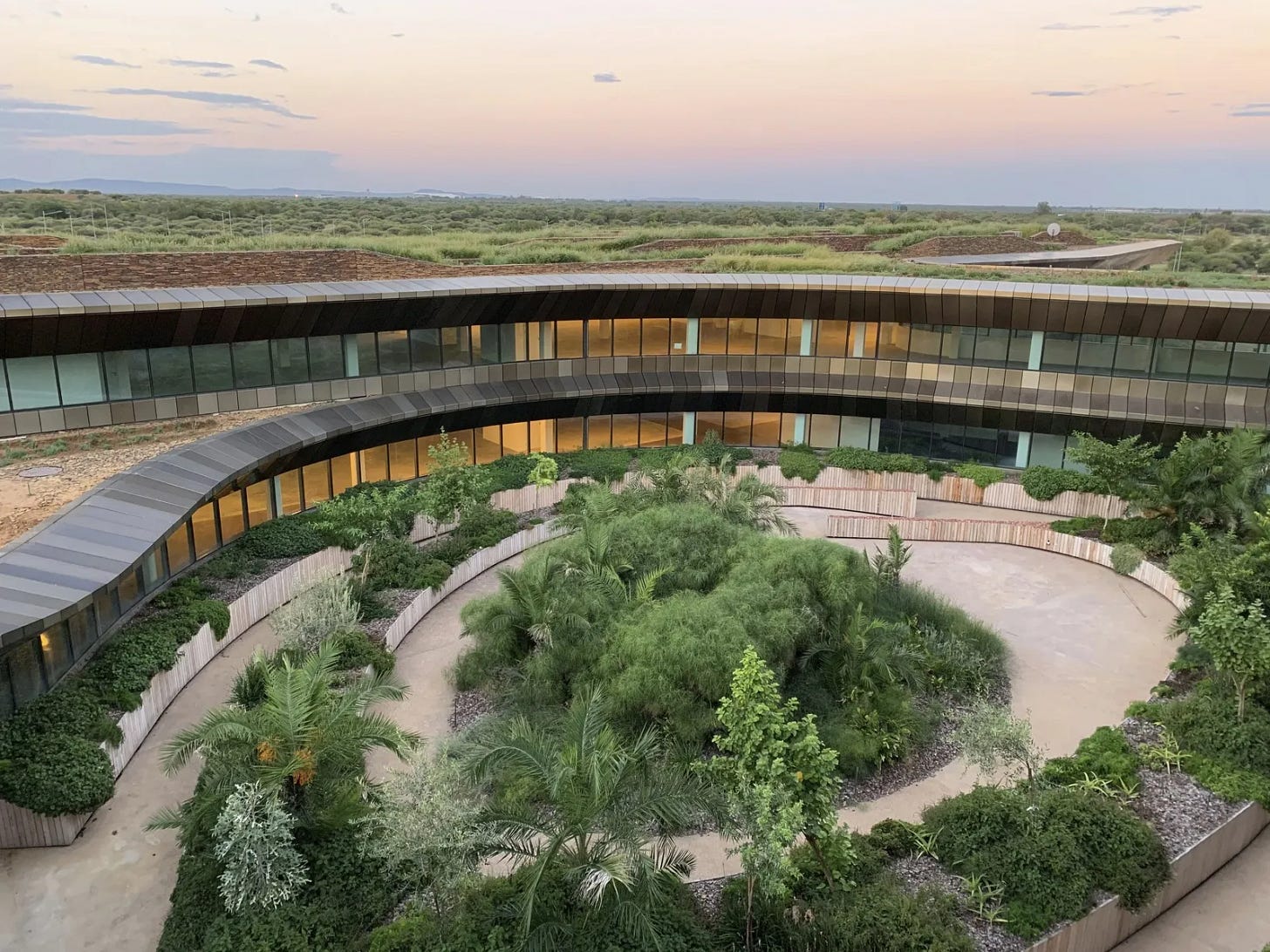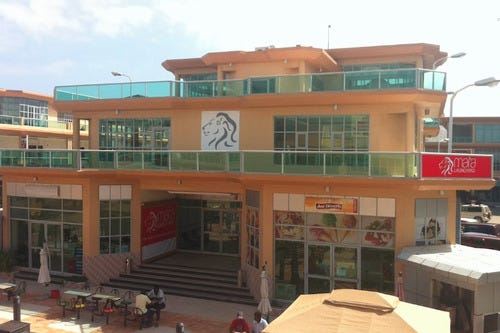We would like to re-introduce our diverse research interests and ongoing projects, particularly a new initiative focused on exploring innovations in entrepreneurial ecosystems across Frontier Markets. This initiative aims to generate culturally relevant and actionable insights to support entrepreneurs in these rapidly evolving environments. By collaborating with key partners such as Pulaspace in Botswana and the Allan Gray Centre for African Entrepreneurship at Stellenbosch University, we are working toward building sustainable solutions for entrepreneurs in regions where traditional support structures may be lacking.
A recent LinkedIn discussion highlights the growing concerns surrounding the viability of tech hubs in Africa, and it's a discussion we find timely as we embark on this new project. The conversation explores the challenges tech hubs face, particularly in generating sustainable revenue and maintaining relevance in rapidly changing ecosystems. Many hubs are shifting their focus from enabling innovation to simply keeping their doors open, as noted by participants in the discussion. This aligns with some of the findings in our research, particularly regarding the sustainability of traditional incubator models.
As part of our reflective process, we also want to revisit some of our work conducted over 10 years ago in collaboration with the Network Science Center at West Point. The insights we gathered then remain surprisingly relevant today, underscoring the ongoing challenges that tech hubs and entrepreneurial ecosystems in Frontier Markets continue to face. We will periodically reintroduce key lessons from that research, which was originally published on platforms like Tumblr and Medium, to demonstrate how these findings still apply to today’s landscape.
Tech hubs in Frontier Markets have long been seen as critical infrastructure for fostering entrepreneurship and innovation. However, a recent report from the International Trade Centre underscores the struggles these hubs face. Nearly half of those surveyed revealed that their core services do not generate enough revenue to sustain operations. Other significant barriers include access to funding, equipment, and skilled personnel. The pandemic has further compounded these issues, leading many hubs to close or significantly scale back their ambitions.
For example, in our archive post below, the Mara Foundation in Dar es Salaam initially operated a large, well-equipped incubator space aimed at supporting local entrepreneurs. However, high overhead costs and a lack of sufficient local ecosystem support forced the foundation to pivot to a more streamlined, mentorship-based model. We found on a subsequent visit that they had adjusted their model; entrepreneurs applied for a six-month program where they received guidance from local business leaders, significantly reducing costs while maintaining the core mission.
Around that same time, we observed that other tech hubs mainly on the African continent, also shifted away from traditional incubator models. Initially designed with aspirations for self-sustainability through membership fees and equity stakes, these hubs scaled back to focus on mentorship and training, offering collaborative spaces without the heavy overhead costs that come with physical infrastructure.
The Icon Building is part of the state-run Botswana Innovation Hub in Gaborone. It has Africa’s largest “green roof.” Photo: Courtesy SHoP Architects
As we consider the future of these hubs, it’s clear that traditional models may not be well-suited for many Frontier Markets. Instead, there is a growing need for more flexible, low-cost solutions that prioritize skill-building, mentorship, and networking over physical infrastructure. This is where our partners like Pulaspace and the Allan Gray Centre play an essential role. By focusing on human capital development, they are helping to create entrepreneurial ecosystems that are both sustainable and culturally aligned with the needs of their local markets.
Storm King Analytics is committed to driving innovation and entrepreneurship in these challenging environments, and we believe that with the right approach, these ecosystems can thrive. By reintroducing relevant past insights and exploring new avenues for growth, we aim to provide meaningful contributions to the future of entrepreneurial ecosystems in frontier markets.
The post from 2013, archived on Tumblr:
Tech Incubators in Africa: Too Fast, Too Soon?
As part of our ongoing data collection effort in support of the Network Science Center at West Point’s research project entitled, “Developing Network Models of Entrepreneurial Ecosystems,” we previously visited the Dar Teknohama Business Incubator, the Buni Collaboration Space, and the KINU Incubator. After those visits, we visited with the Mara Foundation. Mara was founded by Ashish Thakkar, a serial entrepreneur from the Mara Group, an African conglomerate. Thakkar grew up in the United Kingdom and Uganda and considers himself, a native son of Africa.
Mara Foundation is Mara Group’s social enterprise focusing on emerging African entrepreneurs. Its goal is to create sustainable economic and business development opportunities for young business owners through their initiatives.
The Foundation is now active in a number of countries across Africa. We visited with their office in Kampala, Uganda during our data collection visit in the spring of 2013. During this particular visit, we were hosted by Jennifer Mbuya, who leads the Dar es Salaam office.
As we learned, the Mara story is, perhaps, a precautionary tale about the buzz and excitement for tech incubators that are popping up all over the African continent. While these organizations may be the necessary catalyst for aspiring entrepreneurs, not all local environments may be mature enough for these business models.
The Mara model in Dar es Salaam was based on the more traditional models around the world. They acquired a large, modern space, equipped it with the latest equipment, and offered important capabilities for new entrepreneurs like broadband internet, reliable power, a shared support staff, and copiers/printers. They also supplied services such as mentorship and training.
The overhead for this effort was significant and, after a recent assessment, it was determined that the local environment was not developed enough and they changed their model.
The “old” Mara Foundation Office in the Mayfair Plaza in Dar es Salaam
Since that assessment, they have closed down the original incubator space, opened up a much smaller office, and modified their business model. Mara now has leveraged their network of local business leaders to act as mentors to aspiring entrepreneurs. These entrepreneurs apply for entry to the program and if accepted work through a 6-month long program. The mentors have agreed to spend at least two hours a week with each entrepreneur, either in person or virtually.
Mara has had about 35 participants since they modified their model and they are currently on their 3rd cycle under this model. Jennifer told us that Mara has made similar changes in their models at their other offices in both Kampala and Nairobi.
Based on the maturity and business viability of many of the small tech firms we have met with over our data collection visits, and the modification of many incubators' business models, we completely understand the thought process behind this "pivot" in strategy. For example, hubs that we have previously visited like iceaddis and iLab in Liberia, and HiveColab in Uganda have all scaled back their original lofty aspirations. These hubs originally planned for a multi-tier membership model, charging rent for office space, and acquiring equity in the most mature companies. Based on these assumptions, they thought they could be self-sustaining in a short period. All have scaled back their expectations and operate more as collaboration spaces for the local tech community and offer technical training and mentorship.
Based on our observation and conversations, we wonder: Is this rise of tech incubators a bit premature? Are the local ecosystems not ready for the more traditional incubator models?









